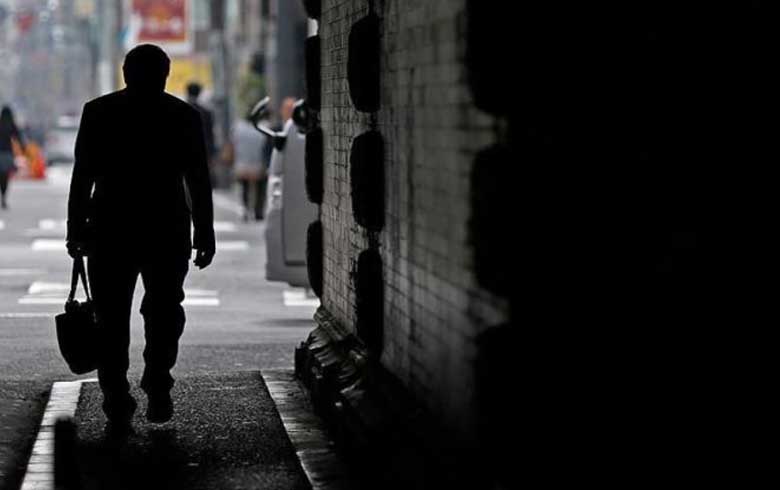
International Labor Organization: 25 million people unemployed due to coronavirus
ARK News.. The International Labor Organization (ILO) has called for a large-scale and coordinated measure, warning that the coronavirus outbreak can increase global unemployment by nearly 25 million.
International Labor Organization (ILO) According to the preliminary assessment document entitled “Kovid – 19 and Working Life: Impacts and Answers” published by The Institute, the initial assessments of the impact of coronavirus on working life in the world show that the impacts will be far-reaching, dragging millions of people into unemployed, underemployment and employee poverty.
Prof. from NTV Dr. According to the news of Cem Kılıç therefore, the ILO calls on all countries to take action for determined, coordinated and emergency response. The coronavirus outbreak, which has already inflicted nearly 700,000 people worldwide and has resulted in nearly 30,000 deaths, has the potential to reach most of the global population. According to the ILO, some estimates suggest that 40 to 70 percent of the world’s population may be infected.
According to the latest assessments by the ILO, the economic and social risk posed by the coronavirus pandemic can increase global unemployment by approximately 25 million and therefore create a labor crisis. On the other hand, if internationally coordinated policies are implemented, as in the 2008 global economic crisis, the impact of global unemployment may remain quite low. In this context, the ILO calls for urgent, large-scale and coordinated measures on three key axes: the protection of workers in the workplace, the stimulation of the economy and employment, and the promotion of jobs and income.
According to the ILO, the main measures to be taken to reduce or eliminate the effects of the pandemic on the labor market are as follows:
Extending social protection:
Supporting employment protection through short work, paid leave and other supports,
Providing financial and tax supports for all businesses, regardless of their size, ie micro, small, medium and large businesses.
Taking public fiscal and monetary policy measures:
Providing lending and financial support for specific economic sectors.
‘Different scenarios for global unemployment’:
ILO presents different scenarios for global unemployment, regarding the effects of coronavirus on global gross national product growth. In this sense, global unemployment, which was 188 million in 2019, is expected to increase 5.3 million in the best scenario and 24.7 million in the worst scenario in the coming period. In contrast, in the 2008 global economic crisis, global unemployment had increased by 22 million.
‘Working time and wages may decrease’:
Underemployment is also expected to increase substantially, as the economic consequences of the coronavirus outbreak will translate into reduced working time and wages. In the ILO assessment, it is stated that in self-employment in developing countries, which usually softens the effects of the changes, this time may not work due to the restrictions placed on the circulation of people and goods.
The drop in employment also means a huge loss of income for employees. According to ILO estimates, by the end of 2020 these losses will be between $ 860 billion and $ 3.4 trillion. This will cause a decrease in the consumption of goods and services. Unfortunately, this will negatively affect the future of businesses and economies.
Does employee poverty increase?
According to the ILO, employee poverty will increase significantly, which means that working people are poor in terms of disposable net income. The reason for this is that the decline in income due to the decline in economic activities will seriously adversely affect employees who are close to or below the poverty line. ILO estimates that 8.8 to 35 million people will fall into employee poverty worldwide, contrary to previous 2020 estimates that there will be 14 million decreases in employee poverty.
‘Some groups will be disproportionately affected by the business crisis’:
The ILO study warns that some groups will be disproportionately affected by the business crisis, which will increase inequality. These groups are those working in unprotected and low-paid jobs, especially young and old workers. The elderly, due to social protection and lack of rights; women, on the other hand, are vulnerable due to their concentration in low-pay and epidemic sectors.
‘Quick policies we need’:
As seen in the ILO’s preliminary assessment report, the coronavirus outbreak is not only a global health crisis, but also a labor market crisis that will have significant effects on people. For this reason, policies that are similar to the priorities need to be developed to address the consequences of the global economic crisis in 2008.
In this sense, social dialogue, which brings together employees, employers and representatives, is vital for overcoming labor market challenges. However, compliance with international labor standards is the basis for a sustainable and fair labor market structure. In this difficult time, everything must be done to minimize the damage suffered by people.
Source: MBS News
388
























